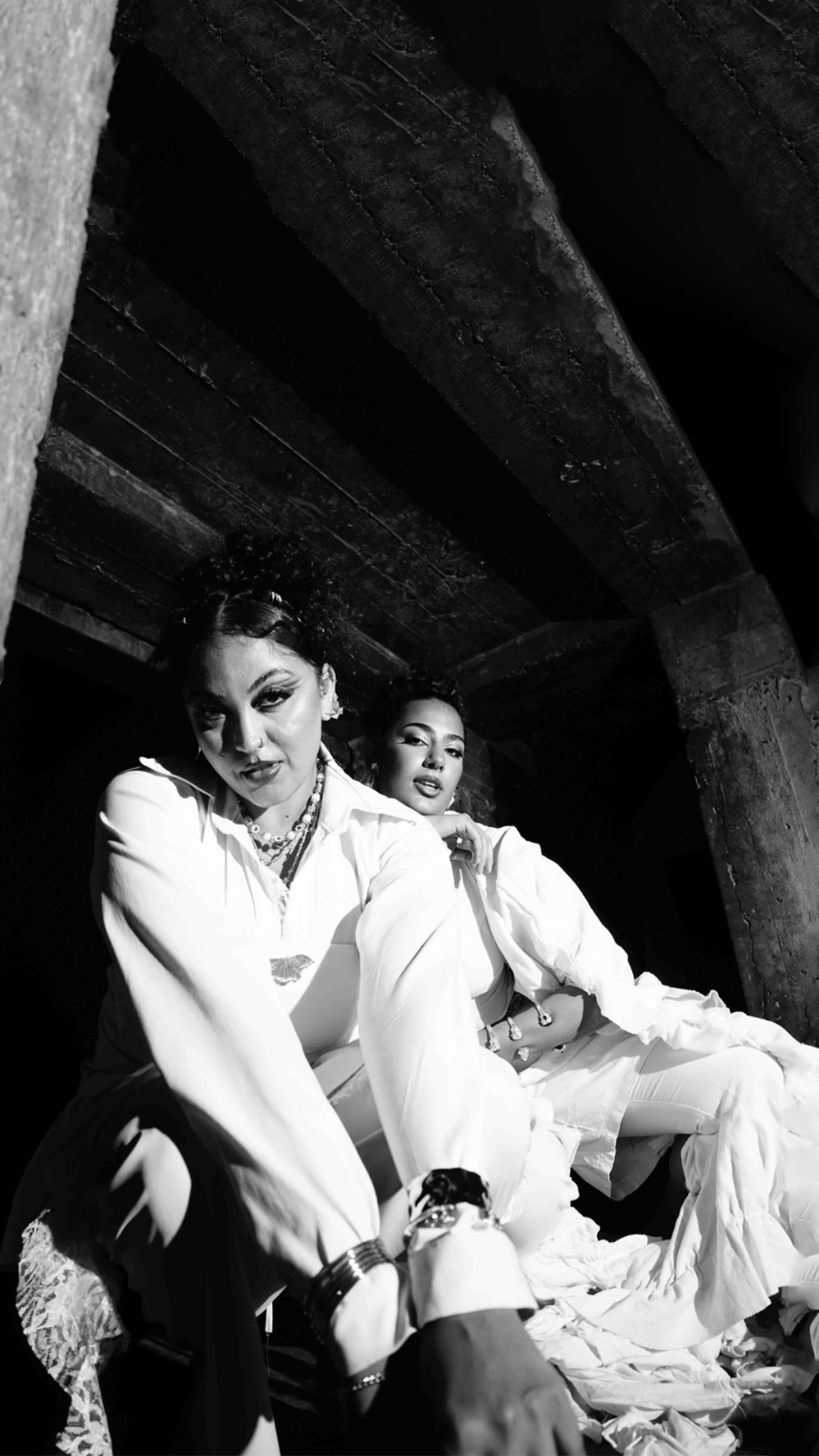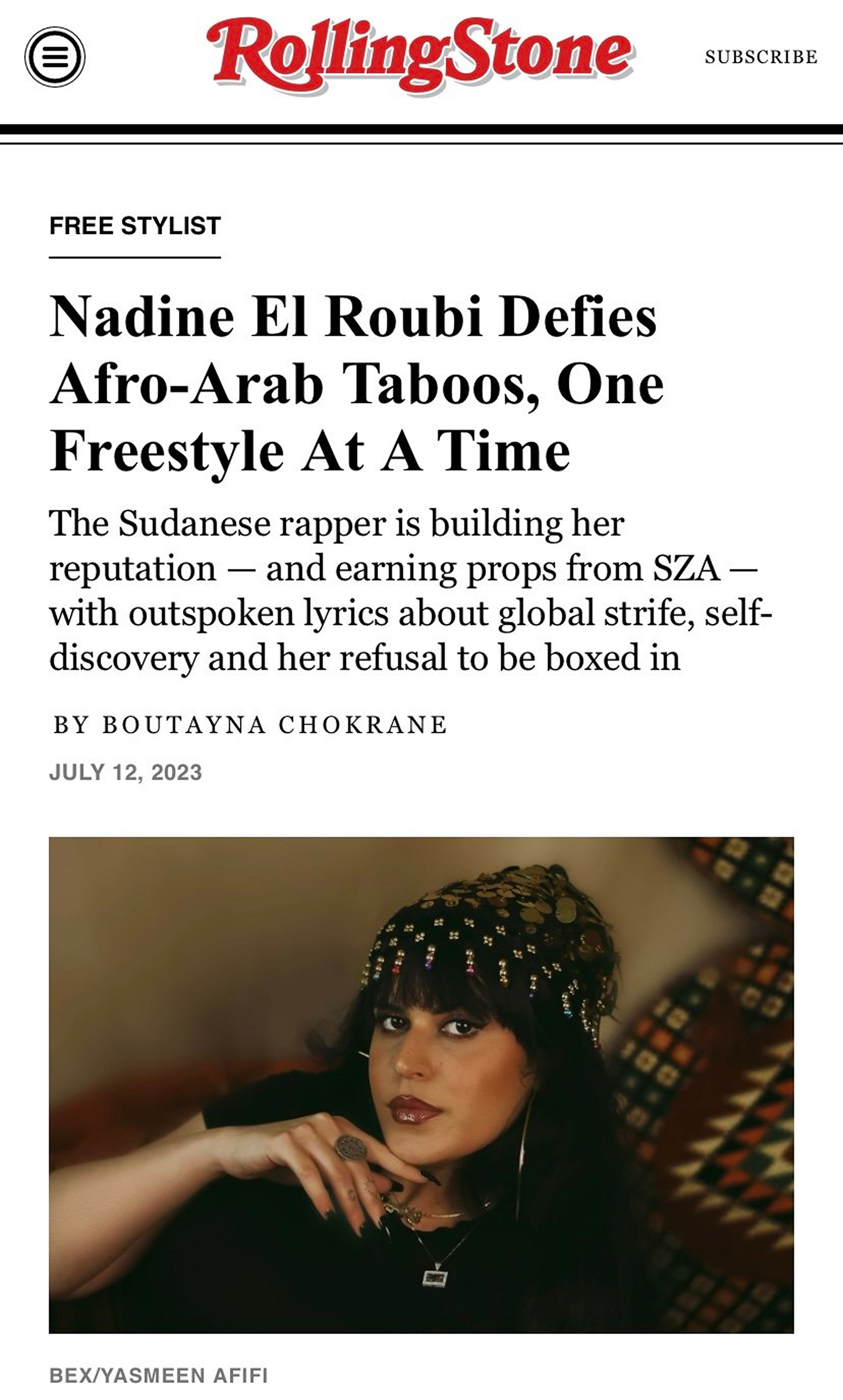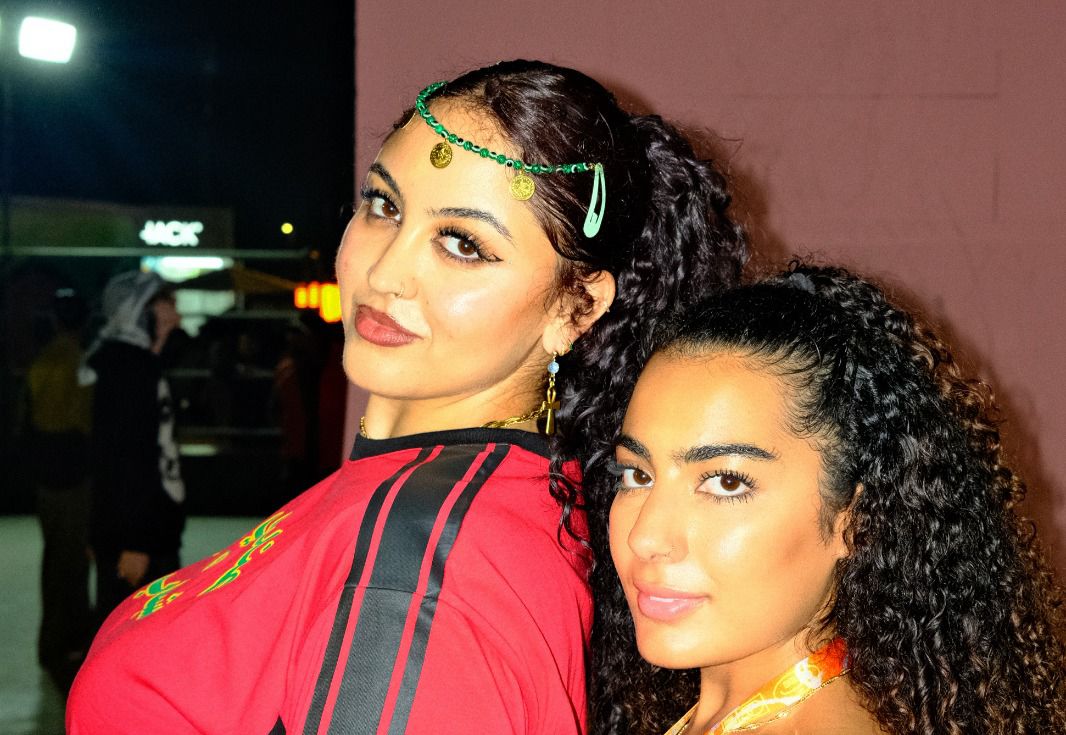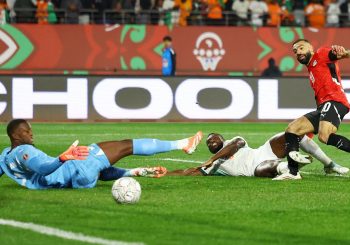There is a popular metaphor that goes, “the eyes are the window to the soul,” a reminder that what we see on the surface is just a glimpse of something deeper.
For artists, their studio is that soul — the heart of their creative process. Yet, too often, it is the visible work — the artworks, magazine covers, videos — that get all the attention, while the behind-the-scenes contributions of those who make it happen remain uncredited.
In recent months, there has been a surge of articles highlighting the rise of Arab talent on the global stage, from the Financial Times declaring that “Arabic pop is having its breakout moment” to Pitchfork noting that “Arabic music is on the brink of a global breakthrough.”
There’s a noticeable cultural shift towards embracing more diverse music styles, with a particular focus on Arabic sounds. However, this shift is also the result of years of collective effort from creatives working behind the scenes to build a homegrown movement that celebrates and elevates Arab and African artists.
Arab voices have long been underrepresented in prominent global creative agencies and studios, and it is not just a matter of representation but also a lack of ownership and recognition. Recognizing this gap, NOORstudios was co-founded by Rebecca Hanna, known as Bex, and Yasmeen Afifi, two Egyptian-American creatives deeply committed to blend culture, creativity and activism.
The studio, named “Noor,” meaning “light” in Arabic, embodies their mission to shed light on Arab and African talent—often overlooked or uncredited for their contributions behind the scenes.
As Arab creatives make their mark on the global stage, NOORstudios is leading the charge for a new generation that is reshaping the industry. “We’re not your typical agency; we’re an anti-agency agency,” Bex tells Egyptian Streets. “NOOR is for the rebels, the outsiders, the minorities—those who create without boundaries and defy the rules.”
Blending culture, creativity and activism

There is more to creativity than just art. There is also culture and activism, and this is something that Bex and Afifi have come to understand growing up abroad in the United States. While many people like to keep activism and culture separate from the creative world, both Bex and Afifi see them as two sides of the same coin.
Raised in an Egyptian household, Afifi was surrounded by strong cultural traditions, values, and a deep sense of unity. “Growing up, my parents and my grandma did a great job of instilling those values,” she recalls. “They gave me the framework to navigate between two very different worlds—the Egyptian culture at home and the American culture outside.”
When the first generation of Arab immigrants arrived in America, their focus was often on survival — settling down, finding work, and building a life in a new country. They did not have many dedicated spaces to reconnect with their cultural roots, but they soon realized something important: culture thrives in public spaces, which is why they began to create them—mosques, community centers, and places where traditions could be preserved, shared, and passed on.
Afifi, growing up as part of the next generation, saw firsthand just how powerful these spaces were in creating a sense of belonging. She remembers the time spent in the mosque, where she found not just a place of worship, but a true community — a place where the local Egyptian-American community came together, shared stories, and supported one another. “In America, we’re far from the motherland,” she says. “So we seek out those who share our culture. We build connections to feel a sense of belonging.”
Afifi’s deep connection to her culture and identity helped her realize that the art world was missing a richness of culture, and there was a real disconnect between cultural perspectives and creative ones. “I didn’t see myself in magazines, on TV, or in movies,” she reflects. “Growing up, there was very little representation of Arabs, especially in creative spaces. This was something I actively processed as a child.”
It was this lack of representation that made her realize that the creative world was lacking cultural narratives that were waiting to be told. At first, she believed that the best way to represent and support her culture and community was through politics and diplomacy, which is she pursued a degree in international relations and immersed herself in activism, attending protests and advocating for causes she was passionate about.
Inspired by her mother’s deep involvement in political activism, she imagined a future as a lawyer or diplomat. However, college marked a pivotal turning point. “It wasn’t until I was a sophomore in college that I realized I could apply my business degree in the creative industry,” Afifi reflects.
This is when she started exploring careers in the entertainment and music industries—fields she had always admired but never thought possible due to the lack of Arab representation. With a new sense of clarity, Afifi set her sights on companies she respected, including Spotify, where she would eventually become head of the Arab community employee resource group.
“We focused a lot on centering Palestinian and Arab artists. Because of that, I never felt afraid to speak out about the issues I deeply care about,” she says.
NOORstudios: Shining a Light on Culture

While working in the industry, Afifi witnessed firsthand the scarcity of Arab voices and how frequently they went uncredited, which is why felt an even stronger calling—to create something from scratch, something that was Arab-led, homegrown, culturally relevant, and driven by the values she held dear.
It all began in 2022 when Bex took the leap and founded NOORstudios. A year later, Afifi joined the journey after years of friendship and shared vision. Both creatives, they were determined to make art that was not only culturally relevant but also grounded in autonomy.
“We started as friends, but what really connected us was being Egyptian creatives in New York,” Afifi reflects.
Their bond grew naturally, from friendship to creative partnership. At the time, Afifi was at Spotify, leading the Arab employee resource group, and she had to bring in external creatives, which is when she hired NOORstudios as an internal agency to handle everything related to Arab culture and music at Spotify. Later, Afifi felt like it was the perfect moment to dive into NOOR full-time and continue doing the work she’s passionate about.
“The reason I’ve stayed committed to building NOOR is because, in the media landscape in America, I can’t even name a single agency run by North African women. It’s really about representation, which is something we lack in the entertainment and media industries,” she explains.
“The way we’re portrayed in the West is often Orientalist, and we have little to no presence in Western media. For me, it’s all about telling our own stories from our own perspectives, rather than waiting for others to tell them for us.”
Since then, NOORstudios has become a space dedicated to elevating Arab and African creatives, offering them a platform to share their work free from the filters and misrepresentations often found in mainstream media. “NOOR is all about the truth,” Bex says. “What sets us apart is that we don’t believe in gatekeeping. Through collaboration and creating a strong community that support each other, we continue to grow and expand.”
NOORstudios has worked with a diverse range of clients, from branding and talent. Their projects have included producing Nadine El Roubi’s Rolling Stone profile photography, designing a visualizer for Rema’s 2020 tour, and creating Elyanna’s visual identity for Arabs@Spotify’s first fireside chat.
While global genres like Afrobeats and Reggaeton have found success in recent years, Afifi believes that Arab music is on the brink of a cultural revolution. She points to the success of artists like Elyanna at Coachella and the recent announcement of Mohamed Ramadan performing at the iconic festival as evidence that Arab music is gaining momentum.
“It’s happening slowly but surely,” Afifi says, “and we’re just getting started.”
One of the main goals of NOORstudios is to establish a homegrown agency that gives Arab and African artists more control over how they present their music to the world. “At Spotify, there were hardly any Arabs, and the decisions about which artists received airtime were made by people who didn’t understand the culture,” Afifi recalls.
“For Arab artists to truly be seen, we need industry insiders who understand the culture and are advocating for those artists behind the scenes.”
As NOOR Studios continues to grow, Yasmeen and her team are preparing for their most ambitious project yet: XP Music Futures, a major music, fashion, and entertainment festival in Riyadh, Saudi Arabia, happening in December 2024. The event will showcase a diverse range of artists from across the MENA region and diaspora, bringing together voices that have long been underrepresented in the global scene.
“This is a full-circle moment for us,” Afifi says. “It’s the culmination of everything we’ve worked for. We’re showcasing the next wave of talent from the Arab world, and I couldn’t be more proud.”
As she reflects on her journey from the U.S. to the Arab world, she expresses deep pride in being part of a local creative scene that is thriving and evolving. “I want to use the knowledge and skills I’ve gained in the West to uplift local artists and brands here,” Afifi says.
“It’s not about seeking Western validation. It’s about creating something for us, by us, that can stand on its own.”







Comments (0)